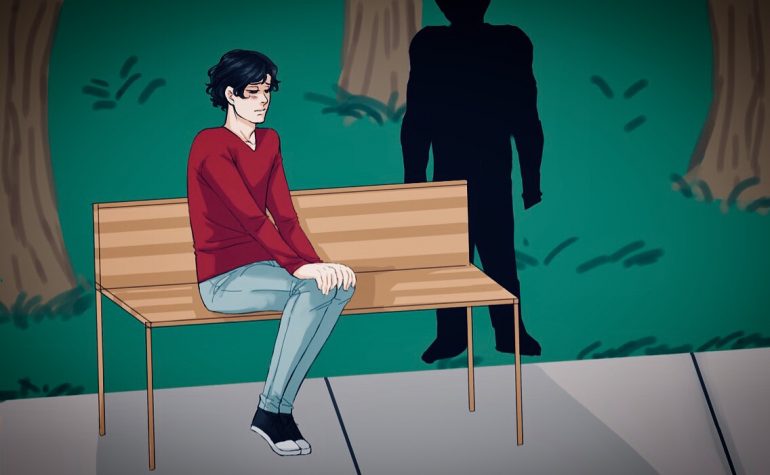Graphic by Carmen Ngo
Most teenagers have at some point passively watched life dance alluringly before them, wishing for what seems to be the essential adolescent experience. In 1999, Stephen Chbosky published a book which perfectly captures this essential yearning for life and the universal mix of emotions upon a teenager’s coming of age. His novel The Perks of Being a Wallflower quickly grew to be an iconic book in Young Adult literature, reaching out to both young readers and nostalgic adults.
When I first read the book during my Junior year of high school, I connected with the essential yearning for life that the main character Charlie faces. Watching the movie a year later rekindled a similar desire for the parties, the sex, the drugs, the utter “life” that I thought everyone around me was living. However, another year later, I look back to this story without that lust for life, and instead with a more solemn perspective. I realize that behind these characters’ eccentric lives of excitement and awe lies the weight of emotions, depression, and anxiety prevalent in modern youth, dragging the high points back down.
Most of all, I find myself considering Patrick and his trials with love as a queer teen in a hostile society. In my reflection on Perks of Being a Wallflower, I cannot help but consider how Patrick is an emblem of queer youth. He embodies the consequences of a lack of adolescent exposure to love, especially through open and healthy queer relationships. This disconnect between teens and the largely heteronormative relationships presented in media and their own homes contributes to the apparent impossibility of finding a happy love story as a queer person. This doubt often leads teens to seek offbeat and fulfilling, yet unsatisfying forms of sexual expression.
In his relationship with a closeted football player, Brad, Patrick struggles to silence his identity and his love. Patrick is pushed to his emotional limits as he hides his relationship, other football players beat him up in the cafeteria, and Brad’s father intervenes, ultimately forcing him to end his relationship. This constant self-suppression and societal disapproval drags Patrick into depression; he alleviates that pain by seeking casual sex with strangers in the park, getting drunk, and going out with Charlie for a distractingly wild night. The one thing that knocks Patrick out of his funk is witnessing Brad also at the park, walking away with another stranger, coping using the same lifestyle.
Chbosky’s portrayal of Patrick’s sexuality illustrates the almost universal sentiment that young gay teens feel in their search for love. I know from my own experience growing up in a world absent of gay role models and gay representation that true love seems nearly impossible for someone of my sexuality. Even so, that desperation for some relationship with love and sex persists, and with the rarity of romance, the next thing queer adolescents look to is satisfying at least their sexual desires by throwing themselves into an intimidating world of hookup apps and/or drugs and alcohol that serve as a substitute or distraction. It is simply the easiest thing to do.
I could plead for immediate representation of queer relationships in all forms of media and demand that hope in finding romance fills the queer community. I could wish to reverse this troublesome and loveless lifestyle that many queer individuals have been pushed to, but that is almost impossible. Even Chbosky is not introducing a hopeful example of queer love. But as The Perks of Being a Wallflower expresses a universal coming of age and adolescent experience, maybe the emotional void, repressed love, and filler sexual ventures are just a staple of growing up queer. This depression, doubt, and desperation for something meaningful might just be common enough in queer lives that it may as well be the norm. However, the book’s final chapter offers a glimmer of hope: as Charlie’s past traumas bring his world crashing down, he is left with a chance to finally look at himself and start a new, healthy life. Just like Charlie, queer youth can take their experiences with mental health, sex, drugs, and relationships and reflect on them as they find new uplifting and hopeful lives, whether it be with multiple loving partners, a monogamous partner, or with themselves.

